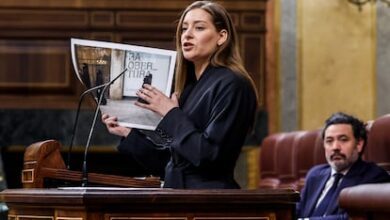
A high-profile court case has concluded in Valencia involving former government commissioner for Dana, José María Ángel. The judge of the city’s Fourth Investigative Court rejected the prosecutor’s appeal that sought to overturn the dismissal of the case over an allegedly forged diploma issued back in 1983.
The court ruling is based on the finding that any potential document forgery offense is no longer legally actionable due to the statute of limitations. The judge emphasized that this was not an ongoing violation, but a one-time act that occurred many years ago. Furthermore, it was revealed that Ángel was not required to have the diploma in question to hold the position in the Provincial Administration of Valencia (Diputación Provincial de Valencia).
During the proceedings, it also emerged that the prosecution had referred to additional investigations involving other individuals and events; however, these materials were not included in the main case. The judge noted that any further investigative actions must pertain to separate circumstances not related to the closed episode.
Court’s reasoning and impact on prosecution
The judge thoroughly examined the arguments presented by the provincial administration, which tried to join the proceedings. However, no evidence was found that Ángel’s lack of required qualifications resulted in financial losses for the state. The judge noted that the former official carried out his duties and received his salary as mandated by law. Had he not worked, or if his insufficient qualifications had caused damage to the budget, the situation could have been different.
Another key point was that fraud requires malicious intent, while in this case, the disputed diploma was not actually needed for the position. This eliminates a critical element of the alleged crime.
Attempt to Recuse the Judge and the Court’s Response
Parallel to the main case, the organization Manos Limpias, which originally filed the complaint, attempted to have the judge recused. However, the court refused to consider this request, since the organization had no official status as a party to the proceedings. There was also no evidence confirming that any cases had actually been initiated against the judge, as the applicants had claimed.
The judge emphasized that he saw no grounds for recusal, and viewed Manos Limpias’ efforts as an attempt to circumvent the legal procedure. In the end, all arguments regarding possible bias or a personal interest on the part of the judge were dismissed.
What’s Next
The court’s decision may be appealed, but for now the case against José María Ángel is officially closed. This case could set a precedent for similar proceedings involving statutes of limitations and qualification requirements for public officials.











